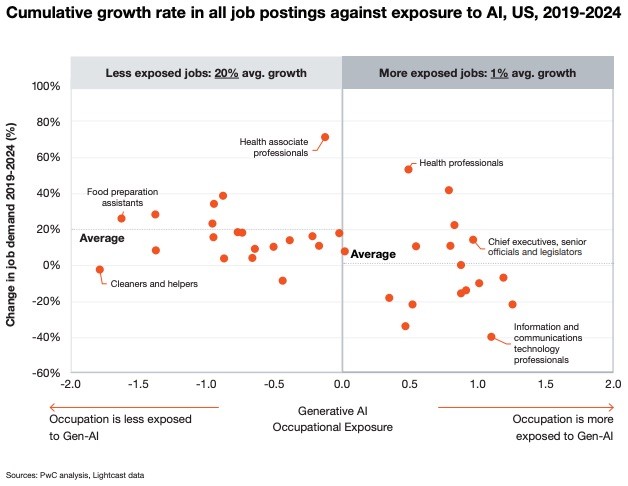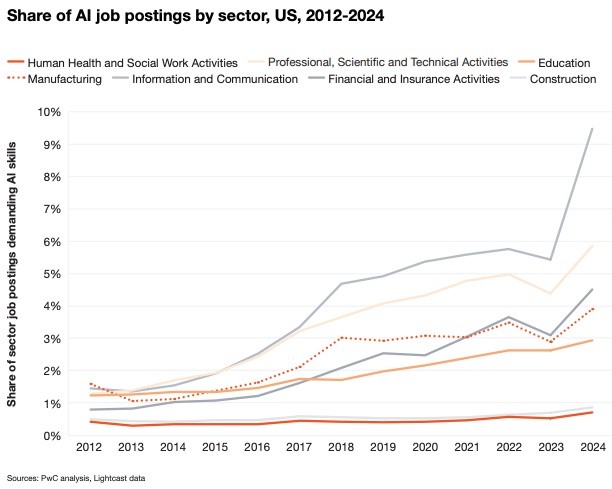In the race to integrate artificial intelligence into the workplace, employers want AI skills – and they’re willing to pay for them. But that demand isn’t translating into more jobs in the roles most impacted by the technology.
According to PwC’s 2025 Global AI Jobs Barometer, which analyzes nearly one billion job postings across 24 countries, more and more jobs are requiring AI expertise. Yet paradoxically, the jobs most exposed to AI tools are seeing the slowest growth in new postings.
“We’re seeing up to four times greater productivity per employee in AI-exposed sectors,” said Peter Brown, PwC’s Global Workforce Leader.
That surge in output per worker explains much of the hiring slowdown. Employers aren’t necessarily cutting jobs — they simply don’t need to add as many. Between 2019 and 2024, U.S. job postings for highly AI-exposed roles rose just 1%, compared to 20% growth for roles less exposed to AI automation.

While growth in headcount may be slowing, the market value of AI-fluent talent is accelerating. According to Brown, roles requiring AI skills now offer a 56% wage premium, more than double last year’s figure.
Even sectors traditionally viewed as AI-resistant — like healthcare and education — are seeing a rise in job listings that require AI competencies. “There’s no sector that’s immune,” Brown noted.

Meanwhile, employees are starting to respond to the shift.
“Workers understand that AI is going to change their jobs,” Brown said. “They broadly see it as a positive thing. Some are afraid about it… but they broadly see it as a positive thing [that] enables them to do their jobs better.”
